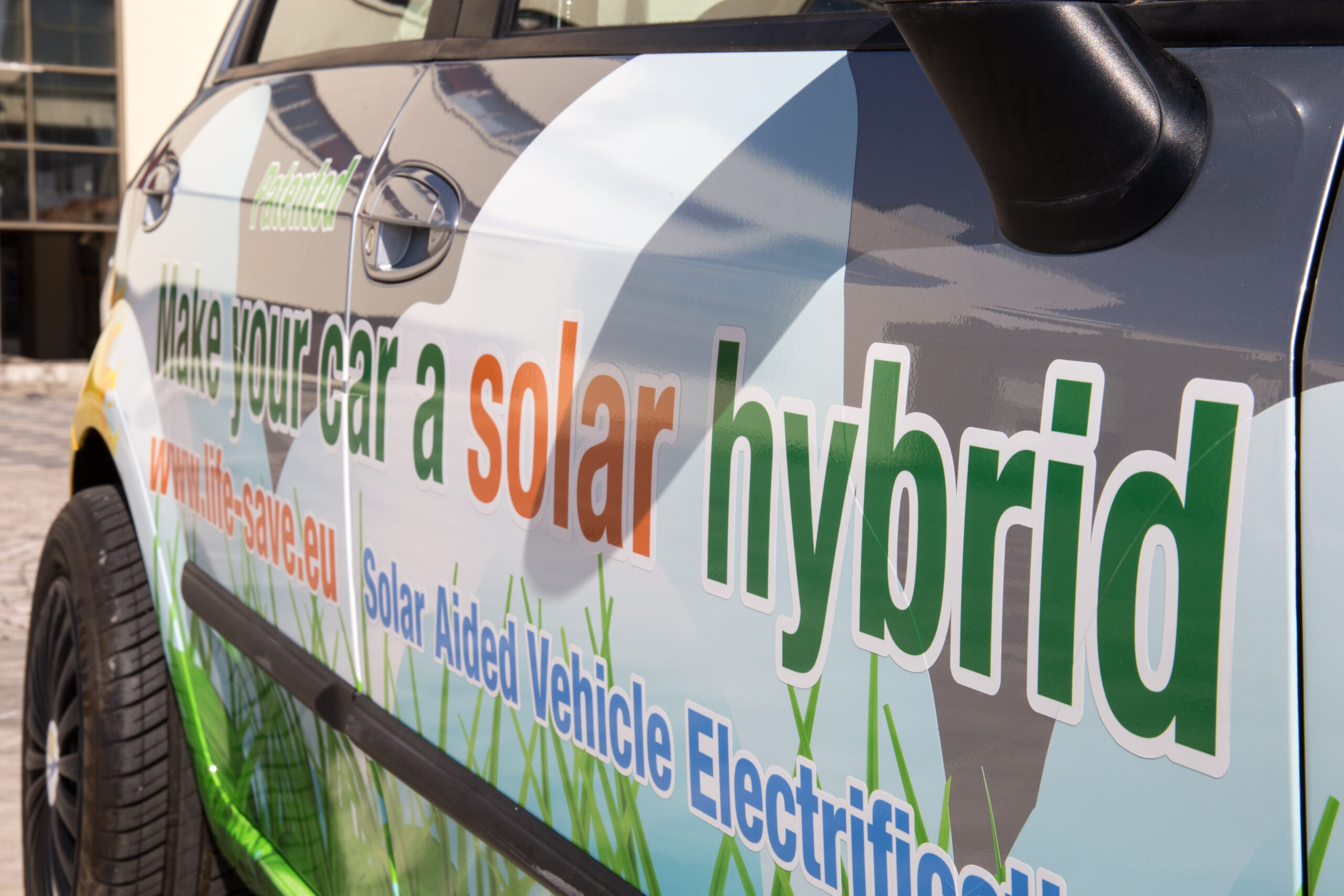Solar car ended up in flames, here are industrial partners and EU funding

A hybrid car powered by diesel and solar energy has exploded. It is a project carried out with European funds by a spin off of the University of Salerno. All the details on the industrial partners
The facts are these: last Thursday on the Neapolitan ring road a Volkswagen Polo which was traveling in the direction of Pozzuoli exploded. The car left behind a dense and tall column of smoke that is clearly visible even from Naples, witnesses say. Initially it was thought of a rear-end collision that could have involved a LPG vehicle, a potential trigger of the explosion, however the car that went up in smoke was not only touched by other vehicles but is experimental, as it is also powered by solar energy. Let's go in order.
WHAT WE KNOW ABOUT THE ACCIDENT
"The investigations that the Prosecutor of Naples has entrusted to Polstrada are still in an initial phase – writes the Corriere della Sera -, and numerous technical investigations will be necessary to be able to establish what triggered the explosion that devastated the Polo but above all caused burns well over 50 percent of the body of the 66-year-old researcher of the Motor Institute of the Cnr Vittoria Prati and the twenty-five-year-old trainee student Fulvio Filace, who are hospitalized in very serious conditions at the Cardarelli burn center and cannot under any circumstances way to explain what happened.
WHOSE SOLAR CAR IS IT?
The car is attributable to the project of eProInn srl (Energy and Propulsion Innovation), a spin-off company of the University of Salerno, born from the initiative of professors and researchers belonging to the eProLab of the Department of Industrial Engineering. The eProInn headquarters is located in the L7 building of the Fisciano campus which houses the spin-off companies of the University of Salerno.
The key people of this reality are Gianfranco Rizzo, founder of eProInn and main owner, professor of Mechanical Engineering at the University of Salerno. Born in Naples in 1952. Graduated in 1975 "cum laude" in Mechanical Engineering at the University of Naples. He worked at FIAT in Turin, at the National Research Council at the University of Naples and currently at the University of Salerno (since 1992) where he is professor of Mechanical Engineering.
And Matteo Marino, in the role of technical manager. Graduated in Electronic Engineering at the University of Salerno. He has experience in mobile network development and optimization, PCB design, embedded systems and in the transportation sector as a System Engineer. IEEE member, EMEA region, Italy section.
Three other people are currently working on the project.
WHAT EPROINN DOES
“Our goal – reads the website of the reality born within university circles – is to promote the development and industrialization of a kit for converting a traditional car into a solar hybrid vehicle, reducing fuel consumption and emissions. The conversion system, patented and already applied to a Fiat Punto, can be applied to all conventional front-wheel drive vehicles, with much lower costs than the purchase of a new hybrid or electric vehicle. The HySolarKit project has obtained the "Seal of Excellence" of Horizon 2020 and is currently being carried out by eProInn and by the industrial partners Landi Renzo, Mecaprom and Solbian within the LIFE-SAVE project".
“More generally – continues the website -, the mission of eProInn extends to the aspects of the green economy linked to energy and propulsion. In these fields, the researchers of eProInn and eProLab have developed a long experience. This is thanks to numerous collaborations and industrial projects and to a vast network of national and international partnerships, in contracts, research projects, European projects and bilateral agreements. The European LIFE programme, an instrument of the European community to support environmental protection initiatives, has approved funding for the development of the SAVE (Solar Aided Vehicle Electrification) project. The project is aimed at the development of finished prototypes ready for industrialization (TRL = 9) and at the establishment of a NewCo among the partners participating in the project”.
THE EUROPEAN PROGRAM THAT FINANCED THE PROJECT
The LIFE program is the EU's financial instrument for the environment and climate action. It has been bringing green ideas to life since 1992 and, to date, has co-financed over 5,500 projects in the EU and in third countries. For the period 2021-2027, the Commission has increased the funding of the LIFE program by almost 60%, to an amount of €5.4 billion and has included the new sub-programme 'Transition to clean energy'.
Read also: When the start-up's electric motor floods: new broken down companies grow
The LIFE program is managed by the European Executive Agency for Climate, Infrastructure and the Environment (CINEA). Among the projects supported is the Salerno-based solar car, as can be read in this fact sheet .
ASPECTS TO CLEAR
Corriere della Sera writes: "However, it remains to be clarified why the CNR, which is not a partner in the project, was dealing with it". In fact, on board was one of the most expert researchers from the Naples Motor Institute of the Cnr. “On this point – informs the newspaper – the director of the Research Institute on Combustion, Professor Riccardo Chirone, will launch an internal audit from today to acquire information also with a view to providing investigators with material that may be useful for the investigation. The main purpose of which remains in any case the ascertainment of the causes”.
This is a machine translation from Italian language of a post published on Start Magazine at the URL https://www.startmag.it/smartcity/auto-solare-partner-industriali/ on Mon, 26 Jun 2023 10:37:55 +0000.
